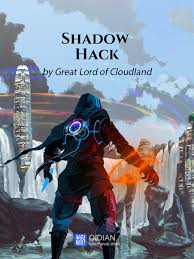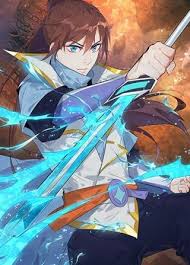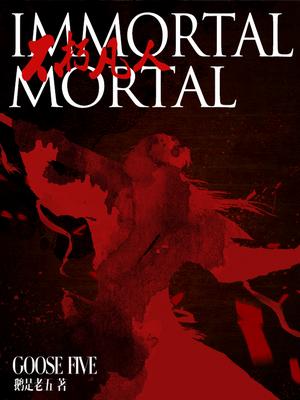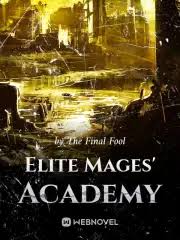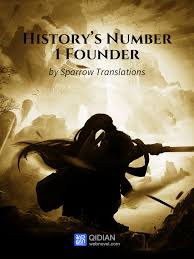The Story in 3 Sentences
An unremarkable young man named Li Yunmu stumbles upon a mysterious supercomputer from humanity’s forgotten age of darkness, instantly disrupting his mundane existence with a bizarre system that allows his shadow to gain experience, skills, and rewards even while he sleeps.
This shadow-hacking ability rapidly escalates from trivial insect kills to world-shaking power, bypassing conventional cultivation limits and thrusting him into conflicts with ancient forces, hidden dimensions, and societal hierarchies.
As Li Yunmu navigates a post-apocalyptic Earth reshaped by meteors, mutated beasts, and flux energy, his journey evolves from survivalist opportunism toward an ambiguous destiny that challenges the very architecture of reality.
Why It Stands Out
1. The Idle God Mechanic
Unlike typical cultivation protagonists who grind endlessly or rely on bloodlines, Li Yunmu’s power grows passively—his shadow levels up autonomously, turning downtime into progression. This “idle RPG” twist subverts xianxia norms by making laziness a strategic advantage, blending gaming logic with cosmic stakes in a way few novels dare.
2. Post-Cataclysm Worldbuilding with Sci-Fi Grafts
Shadow Hack merges xuanhuan tropes with sci-fi remnants: a shattered Earth recovering from meteor-induced collapse, dimensional rifts, AI-like systems, and energy-based cultivation coexist uneasily. Though inconsistently detailed, this hybrid setting borrows from Swallowed Star’s apocalyptic tone but injects a unique “hacking” layer that redefines power acquisition.
3. Satirical Take on Power Fantasy Tropes
Beneath its overpowered surface, the novel quietly mocks the genre’s clichés—Li Yunmu’s initial apathy, his absurdly rapid ascension, and the world’s illogical peace after global devastation highlight the absurdity of instant-god narratives. It’s self-aware enough to entertain while exposing the scaffolding of lazy wish-fulfillment.
Characters That Leave a Mark
There’s Ling Shuang – a sharp-witted and ambitious young woman whose early interactions with Li Yunmu reveal both skepticism and strategic curiosity, positioning her as a grounded counterweight to his chaotic rise.
You’ll meet Lin Li, who appears in the protagonist’s formative chapters as a classmate entangled in the emerging flux-energy society, her presence hinting at deeper institutional dynamics within the new world order.
And Li Feng? They’re the one who emerges later as a shadow alias or fabricated identity created by Li Yunmu himself—a meta-character reflecting his growing manipulation of perception and reality through his hacking system.
The Flaws Fans Debate
The narrative prioritizes power escalation over coherent worldbuilding, leaving core concepts like “flux energy,” “dimensional boxes,” and the “fifth dimension” frustratingly vague even after dozens of chapters.
Character development is minimal; supporting figures often serve as plot devices rather than fully realized individuals, with motivations reduced to archetypes or sudden shifts unearned by prior interaction.
The pacing, while fast, sacrifices emotional stakes—Li Yunmu transitions from zero to godlike with little internal conflict, making his victories feel hollow and his decisions inconsistently rational.
Must-Experience Arcs
Ch. 1–20: Mysterious Shadow Awakening – Li Yunmu discovers the antique supercomputer, unlocks his shadow’s autonomous leveling, and begins racking up experience from mundane kills, setting the absurd yet addictive core loop in motion.
Ch. 200–250: King’s True Territory Expedition – Venturing into a high-risk zone with allies, Li Yunmu faces over 130 ape gods, showcasing the scale of his shadow’s combat potential and the novel’s shift toward large-scale dimensional warfare.
Ch. 950–989: Yin Emperor Perishes – In the final confrontation, Li Yunmu dismantles the ancient Yin Emperor’s dominion, culminating in a reality-altering clash that tests the limits of his hacked existence and closes the overarching cosmic threat.
Killer Quotes
“Do you want to understand the meaning of your life? Do you really want to be alive?”
“Light is the shadows’ cage.”
“I have neither aptitude nor innate skill, but my shadow can level up using hacks.”
Cultural Impact
Despite mixed critical reception, Shadow Hack briefly dominated Qidian’s power rankings, sparking debates about algorithmic manipulation versus genuine popularity.
Fan forums are split between those who praise its addictive “idle progression” loop and critics who call it a “milk-machine excrement” of lazy writing.
The phrase “my shadow killed an ant” became a meme among webnovel readers, symbolizing the absurdity and charm of passive-power fantasies in modern xianxia.
Final Verdict
Start Here If You Want:
A fast-paced, low-effort power fantasy where the protagonist wins by doing nothing—literally.
A genre-blending experiment that mixes post-apocalyptic sci-fi with xuanhuan cultivation through a gaming lens.
Endless escalation with minimal downtime, perfect for readers who enjoy watching systems break reality.
Study If You Love:
Deconstructing how webnovels commodify progression mechanics into addictive loops.
The evolution of “system-based” cultivation narratives in post-2015 Chinese web fiction.
Narratives that unintentionally critique their own tropes through exaggerated execution.
Avoid If You Prefer:
Deep character arcs or psychologically consistent protagonists.
Worldbuilding that explains its rules before deploying them in climactic battles.
Stories where power is earned through struggle rather than granted by narrative convenience.
